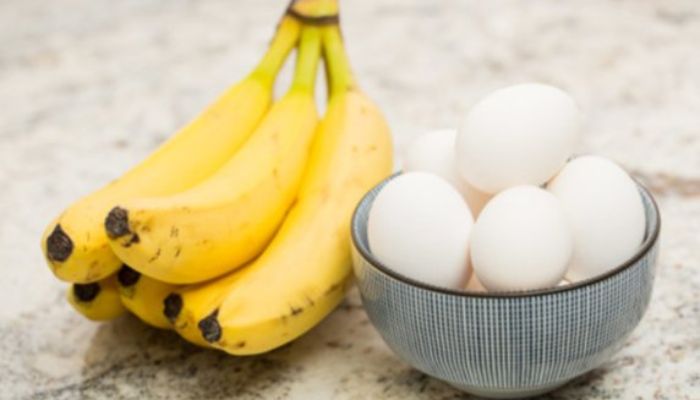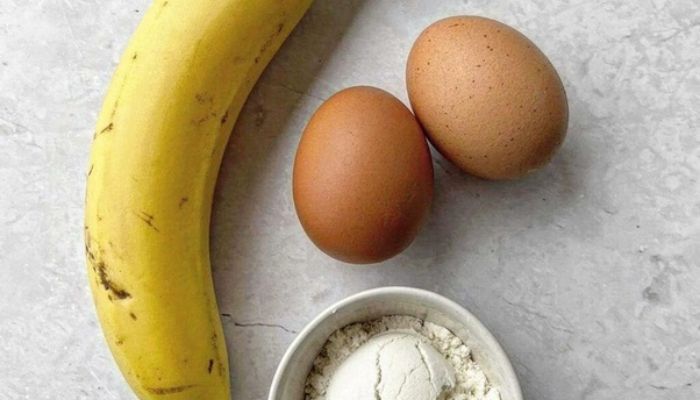As a nutritionist with over 7 years of experience counseling clients on healthy eating and weight management, eggs versus bananas is a common dilemma I help them navigate. Let’s read more about “Eggs vs Bananas Caloric and Nutritional Comparison for Healthier Choices”.
With confusing and conflicting information online, many people struggle to determine whether eggs or bananas make the better nutritional choice for their health goals.
In this evidence-based comparison guide, I’ll leverage my expertise to break down the caloric, vitamin, mineral and nutritional profiles of eggs versus bananas to empower you to make informed decisions aligned with your unique needs.
Caloric, Vitamin, Mineral and Nutritional Profiles of Eggs vs Bananas
Calories: Eggs Pack More Than Bananas
When comparing calorie counts, eggs contain significantly more calories than bananas.
According to the USDA, one large egg contains about 72 calories whereas a medium-sized banana contains 105 calories.
So if you’re closely tracking your caloric intake for weight loss, bananas will allot you more calories per piece of fruit compared to eggs.
However, keep in mind that eggs despite being lower in calories, contain high-quality protein and healthy fats that keep you feeling fuller for longer compared to bananas which mostly supply carbohydrates.
As a nutritionist, I always recommend looking beyond just calories towards the nutritional value of the foods you eat. The vitamins, minerals and other nutrients play a key role in optimal health and functioning.
Let’s explore the nutritional profiles more closely.
Nutritional Profile: Eggs and Bananas Both Supply Key Micronutrients
When it comes to nutrition, one whole large egg contains:
- 6 grams of high quality protein
- 5 grams of healthy fats
- Iron
- Vitamin A, E, D, B6 and B12
- Choline
- Lutein
- Zeaxanthin
Whereas one medium banana contains:
- 3 grams protein
- 12 grams sugar
- 3 grams fiber
- Vitamin C, B6, Manganese and Potassium
- Decent amounts of Magnesium and Folate
As you can see, while their precise nutritional profiles differ, both supply key vitamins, minerals, fiber and antioxidants vital for good health.
Let’s explore some key considerations in depth.
Protein Content: Eggs Have More Protein Than Bananas
As a nutritionist, protein is one of the foremost nutrients I assess in foods since it plays crucial roles related to building and repairing tissues, muscle growth, bone health and proper immune functioning.
Eggs have about 6 grams of protein compared to 3 grams in medium bananas, making eggs the clear winner if you’re looking to increase protein intake.
The protein in eggs is also more bioavailable and contains all 9 essential amino acids making it a complete, high quality protein source.
When I counsel clients like professional athletes, pregnant women and seniors aiming to retain muscle mass as they age, I almost always recommend incorporating more eggs rather than relying on bananas for protein needs.
Micronutrient Density: Eggs and Bananas Shine In Different Areas
Beyond protein, eggs and bananas deliver different combinations of important vitamins, minerals and antioxidants required for optimal health.
As shared earlier, eggs supply more Iron, Vitamin A, Choline and lutein+Zeaxanthin compared to bananas.
These nutrients play special roles related to red blood cell production, eye and skin health, brain development in babies and cognitive function in adults.
On the other hand, bananas excel more in the content of Vitamin C, Manganese, Potassium, Magnesium and Folate compared to eggs.
These nutrients boost immunity, regulate heart health and blood pressure, improve digestion, and help prevent birth defects during pregnancy.
So if you’re specifically looking to obtain more iron, choline, and antioxidants for eye health, eggs would be the better choice.
But if you need extra antioxidants like vitamin C along with minerals like magnesium and potassium, bananas would serve you better.
As you can see, both foods have unique nutritional virtues making them great additions to a balanced diet.
Impact on Blood Sugar Levels: Bananas Spike More Than Eggs
As a nutritionist who often advises diabetic or pre-diabetic clients, a food’s impact on blood sugar levels is another key consideration.
Due to their higher carbohydrate content, bananas have a greater influence increasing blood glucose and insulin compared to eggs.
To put things in perspective, two large eggs contain only 0.36 grams of digestible carbs that convert into glucose and raise insulin levels in our body.
On the flip side, a medium banana contains 14 grams net carbs supplying significantly more glucose to our bloodstream.
Therefore, people with diabetes, insulin resistance or other blood sugar regulation issues might want to moderate banana intake compared to eggs which can be enjoyed more freely.
In fact, in many low-carb or ketogenic diets I recommend to clients for reversing diabetes or losing weight, eggs are emphasized whereas bananas and other high sugar fruits are minimized.
Satiety Impact: Eggs Keep You Fuller than Bananas
As someone who has lost over 20 pounds myself in the past by managing hunger and appetite, I always examine a food’s satiety or fullness impact.
Foods that satisfy our appetite for longer naturally help us eat fewer calories overall.
Multiple studies have shown eggs rank among the highest foods for satiety compared to fruits like bananas.
This means that eggs keep you feeling fuller for longer despite being lower in calories compared to bananas.
The satiating powers of eggs likely come from their protein, fat and nutrient density profile that regulates various appetite hormones better than carb-heavy bananas.
Therefore, clients who feel ravenous between meals may benefit from picking eggs over bananas as snacks to maintain satiety and achieve a calorie deficit for weight loss.
Sustainability Considerations: Bananas Have a Larger Environmental Impact
Finally, environmental and ethical considerations have become crucial decision-making factors for many of my clients over the years.
And when it comes to sustainability metrics, bananas tend to have a larger climate footprint related to farming, transportation emissions and wastage compared to eggs.
Bananas imported from tropical regions also have sustainability challenges related to pesticide use, water consumption and labor practices in certain areas of the world.
Meanwhile, eggs especially from local, free-range chickens raised on smaller farms have a lower collective environment impact.
So if you’re someone looking closely at sustainability factors, eggs may nudge slightly ahead of bananas for positive marks.
Conclusion
When clients ask me whether eggs or bananas are healthier, the answer depends on their personal context, priorities and health objectives.
As the detailed nutritional comparison shows, both eggs and bananas can be nutritious additions to your diet supplying different vitamins, minerals and antioxidants.
However, eggs tend to edge out bananas if you specifically need more protein, have diabetes or blood sugar issues, want help managing appetite and weight or care about sustainability impact.
On the flip side, bananas may be a better choice if you dislike eggs, need more magnesium and potassium or want to increase fiber intake.
At the end of the day, I recommend enjoying both as part of a balanced diet rather than framing it as an “either-or” decision.
Incorporate eggs and bananas together with vegetables, legumes, whole grains and lean protein sources as outlined in healthy eating guidelines.
If you have specialized dietary needs or health conditions, consult a qualified nutrition expert to help personalize guidance for your unique goals and circumstances.
I hope this detailed evidence-based comparison of eggs versus bananas from a nutritional lens empowers you to make informed food choices aligned with your health priorities!

Pooja Bohra is a certified nutritionist with over 8 years of experience in the field. At UnderCalories.com, she specializes in creating personalized dietary plans and promoting sustainable health practices, grounded in evidence-based research. Pooja is dedicated to helping individuals achieve their wellness goals. Follow her on Instagram for the latest tips and insights on balanced nutrition and healthy living.

